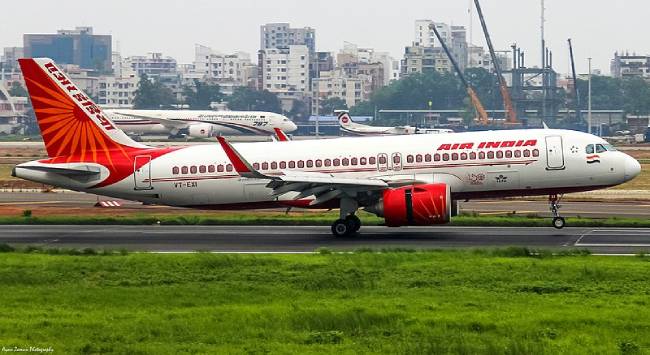Air India’s Landmark Boeing and Airbus Purchases:
Stretching Capacity to the Skies
Amitendu Palit
28 February 2023Summary
Air India has recently placed orders to purchase 470 Boeing and Airbus aircrafts. The huge purchase reflects the national carrier’s plans to upgrade capacities to compete effectively with other carriers in India’s booming aviation travel sector. The purchase also affirms India’s commitment to strategic economic partnerships with the United States and the United Kingdom.
India’s flagship carrier Air India has taken the global aviation market by storm by placing gigantic purchase orders on 14 February 2023. The orders include Boeing aircraft. Announced by none other than the United States (US) President Joe Biden, the deal involves Air India buying more than 200 American-made Boeing aircraft. The orders further include Air India’s purchase of 250 Airbus carriers. These purchases are being described as the ‘mother of all aviation deals’. By ordering a total of 470 planes from mutually competing aircraft manufacturing giants, Boeing and Airbus, Air India has surpassed earlier orders considered the largest purchases in global aviation history: those by the Indian carrier, IndiGo in 2017 and American Airlines in 2011.
India’s civil aviation market is experiencing a huge increase in demand. After the withdrawal of flying restrictions imposed due to COVID-19, domestic air travel has returned to nearly pre-COVID levels. At the same time, the number of Indians travelling overseas has increased by more than 100 per cent during 2022 despite not reaching the pre-COVID levels underlining prospects of a further increase in demand for international air travel. Indian aircraft carriers are looking at a booming market with exponential growth. Responding to the rising demand requires the expansion of capacities. This is precisely what Air India is aiming for through its new purchases.
Coming just a year after the Tatas took over an ailing state-owned Air India, the purchases mark an expansive and ambitious strategy to enlarge the presence of Air India in domestic and international air travel. The budget carrier IndiGo has an overwhelming share of more than 50 per cent of the domestic travel market, followed by another budget carrier, SpiceJet, with 10 per cent. With its current market share even lower than that of SpiceJet, Air India recognises the huge expansion in capacity required for it to snatch higher market shares in domestic travel. This is evident from the large numbers of Boeing 737 Max and Airbus A320s it plans to purchase. These aircraft, ostensibly, will be deployed in domestic travel as well as in short-distance international flights – another area where IndiGo and SpiceJet have made inroads.
India’s civil aviation market is intensely competitive. For the Tata Group, the fact that it took over a large but failing national carrier with an ageing fleet is not enough to assure commercial returns. Such returns, essential for revitalising the carrier, require it to compete hard with IndiGo and SpiceJet as well as other carriers like Vistara and GoFirst, all of which have modern fleets. Acquiring a diverse range of new aircraft will enable Air India to compete effectively in both budget and full-service segments of the Indian aviation industry. Given the high demand for global travel from India, and the fact that several global airlines are yet to recover from the setbacks of the COVID-19 pandemic, Air India senses an opportunity in positioning itself as a leading global airline with India as the hub. Orders placed for new dual aisle wide-bodied long-haul crafts in the purchase deals reflect the urge to capitalise on the opportunity.
The purchases have elicited euphoric responses from the US and United Kingdom (UK). Biden hailed the deal for the support it will provide to “…over one million American jobs across 44 states”. UK Prime Minister Rishi Sunak joined Biden in applauding the deal, emphasising “it will create better-paying jobs and new opportunities in manufacturing hubs from Derby to Wales”. It is indeed a rare occasion when respective heads of state of the US and UK – locations of arch-rivals Boeing and Airbus respectively – agree over the virtues of a deal in bringing similar benefits for their economies.
The wider implications of Air India’s purchase of Boeing and Airbus aircraft extend beyond the economic benefits it would bring for the carriers. The landmark purchases will positively influence India’s partnerships with the leading members of the world’s elite G7 group of countries. Coming at a time when India has been pushed hard to play a delicate balancing act between the West and Russia over the Ukraine conflict, Air India’s purchases will remove misgivings over India’s commitment to the US, UK and the West in deepening strategic economic partnerships.
. . . . .
Dr Amitendu Palit is a Senior Research Fellow and Research Lead (Trade and Economics) at the Institute of South Asian Studies (ISAS), an autonomous research institute in the National University of Singapore (NUS). He can be contacted at isasap@nus.edu.sg. The author bears full responsibility for the facts cited and opinions expressed in this paper.
Pic Credit: Wikipedia Commons
-
 More From :
More From :
-
 Tags :
Tags :
-
 Download PDF
Download PDF


